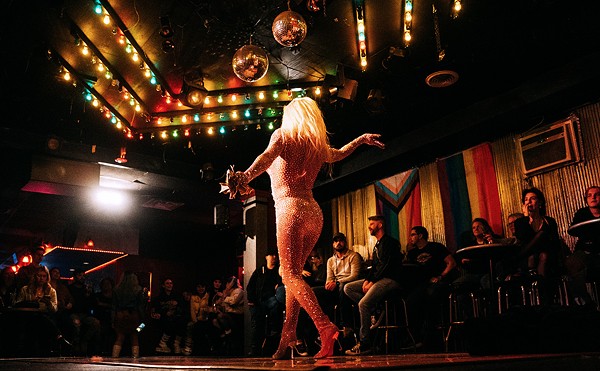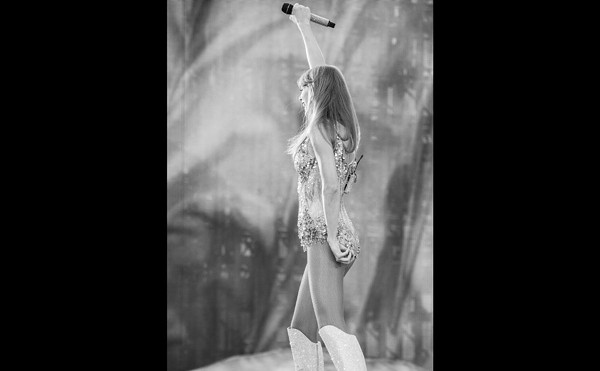|
By Steve rosen LOS ANGELES — Too often, the huge domestic popularity of Japanese ghost and horror movies gets lost in translation here in the U.S.
These films, certified smashes in their native Japan, come and go quickly from stateside art houses, seen by devoted but small cultist audiences. But Hollywood believes it has an answer for that problem — remakes. The first of several upcoming big tests of this strategy comes Friday with the opening of The Grudge, a Columbia Pictures remake of a spooky, eerie Japanese film (Ju-on) about a cursed house and the ghosts who possess it.
The premise is both simple and fantastically bizarre. Anyone who enters the house is marked for death by ghosts of mysterious shapes and forms; human and otherwise.
The ghosts are not confined inside the house, either. They operate more by internal, organic rhythms than screenwriting plausibility. For die-hard fans, that breaks the rules and makes the story all the scarier.
The Grudge remake stars Buffy the Vampire Killer's Sarah Michelle Gellar and, in a risky move, is directed by the Japanese writer/director of Ju-On, Takashi Shimizu.
The producer is no less than Sam Raimi, the very successful director of the Spider-Man movies whose first film, The Evil Dead, has become a horror classic.
"Americans have always loved the next new thing, the next new style, the next new movement in books or cinema," Raimi explains, sitting in his Los Angeles hotel room. "This just happens to be a new and fresh movement in international horror right now. We just needed, I felt, for it to be in English with American actors so that more Americans would see the film. Few Americans would see a film set in Japan with Japanese actors."
Raimi isn't completely pioneering this attempt. In 2002, DreamWorks had a huge hit adapting the Japanese Ringu — about a death curse befalling anyone who watches a certain mysterious video — into The Ring. It starred Naomi Watts. It now plans a Ring II, just as there are a series of Ringu films in Japan.
Meanwhile, Disney is adapting Dark Water, about a mother and daughter trapped in a haunted apartment building, for release next year. It stars Jennifer Connelly and is directed by Motorcycle Diaries' Walter Salles. And looking toward other Asian countries, DreamWorks has bought the rights to South Korea's A Tale of Two Sisters, in which two teens return from a mental institution to find their family home possessed by evil spirits. Raimi's Ghost House Productions is also planning a remake of The Eye, a Hong Kong film by the Pang brothers about a blind girl who sees ghosts after eye surgery.
Proof of its success, Ju-on has turned into a series in Japan, moving from origins in short films to two straight-to-video-releases and then a hit theatrical feature. Atypical for a Hollywood remake, the "new" Grudge stays close to its Japanese roots. It is set in Tokyo and Takashi Shimizu is at the helm.
Japanese horror films like The Grudge and The Ring are part of a successful trend but what is it about these Japanese movies that make them so different from the Nightmare on Elm Street and Halloween derivations that still seem to define American scary movies?
Raimi ponders the question. Thin with soft facial features and softer voice, unshaven with short brown hair brushed naturally, he looks much younger than his 44 years. In fact, wearing a narrow tie that looks right out of a New Wave-rock video, he looks like a college student after a long night out.
"I haven't seen enough to speak intelligently about Japanese horror movies as a whole, but that hasn't stopped me from answering questions before," he says, laughing. "I thrive on it." Then he turns serious. "Of the few I have seen, what's so strikingly different to me is that I think Japanese culture has a much greater belief in a spiritual world that coexists with our own. So they take a lot of things for granted in a Japanese horror film.
"We need to be indoctrinated into that world," he continues. "When we make an American horror film, we usually have to explain why the supernatural exists — and we need a set of rules to go along with it. The Japanese films, which begin with a base of understanding of the spiritual world, which we don't have, are freer to now tell a poem about it. So I think it gives them a greater freedom.
"Also, in the Japanese films I've seen, I believe they have a greater sense of the audience's intelligence. Like this director, he's very patient. That's something I don't see in a lot of American directors. The American filmmakers often times — myself being guilty of this — feel we've got to entertain, entertain. We've got to give them something right now."
There's an American source to this acceptance of the supernatural, one with a Cincinnati origin even. As Shimizu explains, through a translator while sitting and smoking in his hotel room, the writer Lafcadio Hearn had a major impact on his culture. As detailed recently by writer Steve Kemme in The Cincinnati Enquirer, Hearn was a 19-year-old Greek-Irish immigrant when he came to Cincinnati in 1869 and began writing about the city's gritty, hardscrabble life for daily newspapers.
For the last 14 years of his life, Hearn lived in Japan and wrote down traditional folk tales. He is still famous in Japan today for helping people realize the literary merit of their traditional stories. This year, the centenary of Hearn's death is being celebrated in Japan as a major event. Hearn's most well known work, itself made into a classic Japanese ghost-story movie in 1965, is Kwaidan.
"I can definitely say that he affected my whole career and style — he's definitely one of the most famous foreigners who wrote Japanese ghost stories," Shimizu says. "What's so interesting is those ghost stories were something very usual to us, just normal stories. But to him, they were very unusual. He made the Japanese realize how great those stories were. And that is one reason I now know those ghost stories and know how scary they are."
Shimizu, who has a shy smile and a tiny goatee, dresses like a scruffy Beatle trying to make it in Hamburg — a blue-denim cap with a stiff brim, a corduroy jacket with what appear to be weathered stains around the seams. He looks like a kid — much younger than his 32 years. Asked earlier in the day by a group of journalists what scares him, he replies, "Women, for a start."
There are American ghost and horror movies he likes — The Exorcist, The Sixth Sense. But there are others he believes are very different from his interests. "The thing is that in American horror films, it's all about bad guys attacking you," he says. "But in Japanese horror, it's all about the existence of ghosts. They're just there. They have their own realm. And just being there is scary — that probably has something to do with our culture and religion.
"But I want Americans to understand my tastes. And actually, that would be good progress. The Japanese would bring a new idea into America, and if Americans want it and make it their own, then we Japanese will have to come up with a new idea."
If that does happen, he already has plans for moving on, too. "Since I've been doing so many horror movies lately, that's all I've been asked to do. But I didn't want to be a horror-movie director; I wanted to be a director. So now I want to do comedies."





